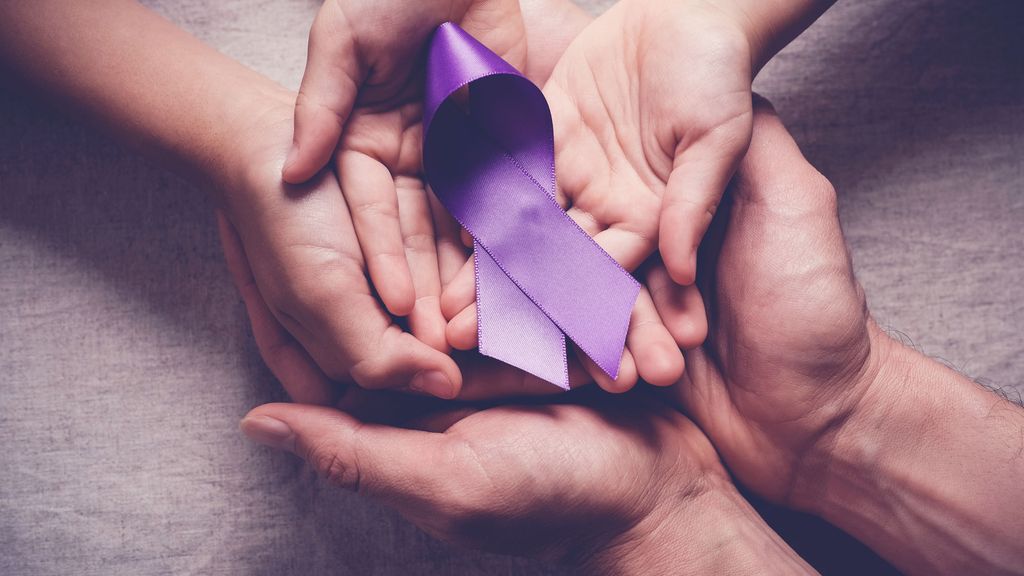
Low-dose chemotherapy effective in older and frail patients
30
Min. Lesezeit
04.06.2019
Weiterempfehlen
<p class="article-intro">The GO2 trial tested the lowest effective dose of palliative chemotherapy for advanced gastroesophageal cancer in older/frail patients unable to undergo higher-dose chemo. The lowest dose level was as beneficial, with less toxicity, as the full dose. Overall survival and progression-free survival were equivalent regardless of dose level.</p>
<hr />
<p class="article-content"><p>The phase III GO2 randomized trial of 514 older and frail people in the United Kingdom with advanced gastroesophageal cancer found that the lowest tested dose of oxaliplatin (Eloxatin) and capecitabine (Xeloda) was comparable to the highest dose in terms of delaying disease progression and minimizing side effects. “Previous trials of palliative chemotherapy for gastric and esophageal cancer have not included frail or older patients, therefore the benefit of chemotherapy in these groups was unknown,” said lead study author Peter S. Hall, PhD, a Medical Oncologist at the University of Edinburgh, United Kingdom. “We hope our finding helps patients make a more informed choice, between low-dose chemotherapy and no chemotherapy at all, with the knowledge that that low-dose chemotherapy can prove beneficial and still allow them to maintain some quality of life while slowing the progression of the disease.”</p> <h2>About the Study</h2> <p>In a phase II trial in a similar population of older and frail patients with advanced gastroesophageal cancer, the combination of oxaliplatin, a therapy that inhibits DNA replication, and capecitabine, a therapy that inhibits tumor cell division, was found to be more effective at controlling disease than capecitabine alone. It was also more effective than a combination that included oxaliplatin, capecitabine, and epirubicin (Ellence), which was too toxic and could not be tolerated. Epirubicin inhibits DNA and RNA synthesis, resulting in cancer cell death. This trial was designed to find the optimum dose of capecitabine and oxaliplatin for use in older or frail patients. To determine optimal clinical benefit, tolerability, quality of life, and patient satisfaction, for the two-medicine therapy, researchers incorporated these factors and others into an assessment tool called Overall Treatment Utility, or OTU. Between 2014 and 2017, investigators randomly assigned people, age 51 to 96, to three dosage levels. Level A was 130 milligrams per meter squared of body surface area (mg/m2) of oxaliplatin given once every 21 days and a 625 mg/m2 dose of capecitabine twice a day given continuously. Level B was 80 % of Level A dosage and Level C was 60 % of Level A dosage. People with decreased kidney function received 75 % of the suggested doses of capecitabine. After 9 weeks, patients were assessed for OTU. Continuation of the medicines was based on the judgement of the physicians.</p> <h2>Key Findings</h2> <p>People who received Level C dosages had fewer toxic reactions to the medicines and better OTU outcomes than Levels A or B. Level C produced the best OTU even in younger, less frail people and no group benefited more from higher dosage levels. Several secondary measures were also assessed. Overall survival was comparable across doses: patients lived a median of 7.5 months at Level A dosages, 6.7 months for Level B, and 7.6 months for Level C. Researchers also found the same times for progression-free survival (length of time without signs of the cancer progressing) across all three levels: people receiving Level A doses lived a median of 4.9 months, Level B a median of 4.1 months, and Level C a median of 4.3 months, all without signs of the disease worsening. Side effects of grade 3 or more, which can often be serious, were seen in 56 % of people getting Level A and B doses but were seen in only 37 % of people getting Level C doses. People getting Level C doses also had a higher percentage of good OTU scores (43 % ) compared to Levels A and B (35 % and 36 % respectively).</p> <h2>Next Steps</h2> <p>The GO2 trial is the third study in the UK to use OTU as a study outcome in older and frail people, the first being the FOCUS2 trial of colorectal cancer patients and the second being the 321GO trial in gastroesophageal cancer patients. According to the authors, the use of OTU could present a new paradigm for how to assess outcomes in older populations with late-stage disease. The researchers are working on sub-analyses of their findings. Additionally, they hope to determine if any one of the nine factors that comprise the OTU is dominate or more determinative regarding a patient’s health.</p></p>
<p class="article-footer">
<a class="literatur" data-toggle="collapse" href="#collapseLiteratur" aria-expanded="false" aria-controls="collapseLiteratur" >Literatur</a>
<div class="collapse" id="collapseLiteratur">
<p>Hall P et al.: Optimizing chemotherapy for frail and elderly patients (pts) with advanced gastroesophageal cancer (aGOAC): The GO2 phase III trial. ASCO Annual Meeting 2019, Abstract 4006</p> <p><br /><a href="https://at.universimed.com/fachthemen/1000001332">zurück zum ASCO 2019 Newsroom</a></p>
</div>
</p>
Das könnte Sie auch interessieren:
Erhaltungstherapie mit Atezolizumab nach adjuvanter Chemotherapie
Die zusätzliche adjuvante Gabe von Atezolizumab nach kompletter Resektion und adjuvanter Chemotherapie führte in der IMpower010-Studie zu einem signifikant verlängerten krankheitsfreien ...
Highlights zu Lymphomen
Assoc.Prof. Dr. Thomas Melchardt, PhD zu diesjährigen Highlights des ASCO und EHA im Bereich der Lymphome, darunter die Ergebnisse der Studien SHINE und ECHELON-1
Aktualisierte Ergebnisse für Blinatumomab bei neu diagnostizierten Patienten
Die Ergebnisse der D-ALBA-Studie bestätigen die Chemotherapie-freie Induktions- und Konsolidierungsstrategie bei erwachsenen Patienten mit Ph+ ALL. Mit einer 3-jährigen ...


